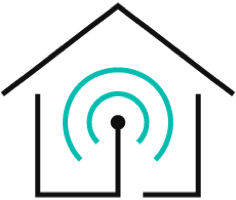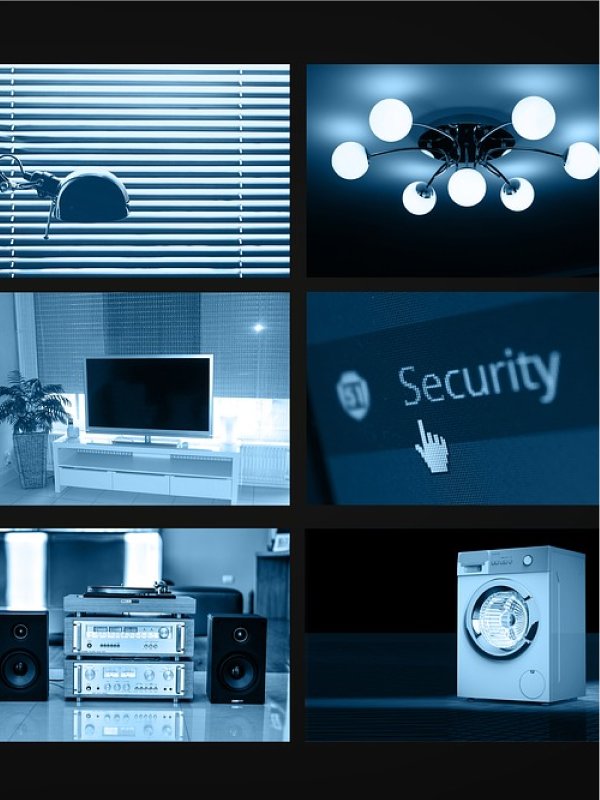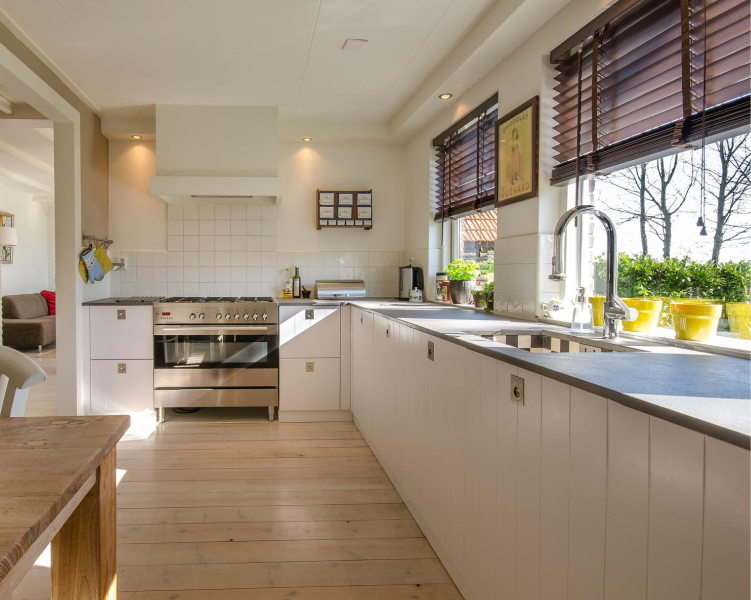Imagine returning home after a long day. As you approach, the lights gradually illuminate, the HVAC adjusts to your preferred temperature, and soothing music begins to play—all orchestrated seamlessly. Such convenience and customization are possible with DIY home automation systems. Investing in these systems brings numerous benefits.
They allow you to personalize your home environment, enhance security, and optimize energy efficiency according to your preferences and lifestyle. Looking at these exciting benefits, more people are turning to home automation devices. The global DIY home automation market size is projected to hit USD 5,29700 million by 2030.
This article is going to discuss a DIY home automation system, how it works, and the best DIY smart home solutions you can try. Let's dig in!
- Basics of DIY Home Automation
- Best DIY Home Automation Solutions
- Best Smart Home Hub for DIY Home Automation Management
Basics of DIY Home Automation
Let's look at the basics of DIY home automation, like how you can build your home automation system and the benefits it'll bring you!
Steps for DIY Home Automation
Here are the things you need to make your DIY home automation:
Choose Smart Home Devices
The initial and pivotal phase in establishing your DIY home automation system involves carefully selecting smart home devices. Start by pinpointing specific areas in your home that you intend to automate, such as lighting, climate control, security, or entertainment. Pick devices based on personal preferences and requirements, ensuring compatibility and seamless communication.
Some common smart devices you can add to your home are:
EVVR Smart Energy Monitor Plug and Relay
EVVR Smart Plug serves as a smart plug with energy-monitoring capabilities. It lets you control connected devices remotely and provides real-time energy consumption data. The relay feature adds flexibility and allows you to bring automation even in old homes.
Amazon Echo Dot (4th Gen)
The Echo Dot integrates with various smart home devices as a versatile smart speaker. Its voice-controlled assistant, Alexa, enables the hands-free operation of connected devices. The 4th Gen model features improved sound quality and a sleek design, making it an ideal centerpiece for voice-activated control in your home.

Nest Learning Thermostat
The Nest Learning Thermostat is an intelligent climate control device. It learns your temperature preferences over time and automatically adjusts to optimize energy efficiency. This smart thermostat's compatibility with other smart devices and the ability to create schedules contribute to a more comfortable and energy-conscious home environment.

Choose Your Smart Home Management Platform
To effectively manage your smart home devices, invest in a suitable smart home hub. A smart home hub serves as the central controller, linking various devices and enabling seamless communication between them.
Popular options include virtual hubs like EVVR Center Lite, Amazon Echo (4th Gen), etc. These platforms operate over the internet, allowing you to link the accounts of different Wi-Fi-enabled devices.
With your smart home devices connected to the hub, the next step is to create scenes or automation tailored to your preferences. Scenes allow you to preset multiple devices to specific settings with a single command. For instance, you may create a "Movie Night" scene that dims the lights and adjusts the thermostat.
Conversely, automation involves setting up rules that trigger device actions based on specific conditions. This could include turning off lights automatically when no motion is detected or adjusting the thermostat when you leave home.
Benefits of DIY Home Automation
Here are some benefits of DIY home automation:
- Cost-Effective: DIY home automation systems are more budget-friendly compared to professionally installed ones.
- Versatile: You can pick devices per your choice and lifestyle and create automation scenes to fit your needs.
- Better Security: By adding devices like smart sensors, cameras, or locks, you can enjoy enhanced security and real-time home monitoring when away.
- Energy Usage Management: DIY home automation systems also enable you to optimize your energy usage by automating your HVAC system, lighting, and other devices.
Best DIY Home Automation Solutions
Let's discuss the many DIY automation solutions to have your ideal smart home setup:
Use Raspberry Pi
Raspberry Pi is a small credit-card-sized, single-board computer developed to promote computer science education and facilitate DIY projects. Raspberry Pi is a versatile and cost-effective smart home hub when used in home automation.

- Purchase a Raspberry Pi board. The latest models, like Raspberry Pi 4, offer improved performance and connectivity options.
- Once secured, a compatible power source like a micro USB power adapter is essential. Also, get a microSD memory card serving as external storage, preloaded with an operating system like Raspbian.
- For initial setup and programming, a keyboard, mouse, and monitor are required to enable direct interaction with the Raspberry Pi.
- Following configuration, the Raspberry Pi can be accessed remotely.
- Familiarize yourself with programming on Raspberry Pi. Python is commonly used for automation scripts. Install relevant software and libraries for smart home integration.
- Choose and install smart home software compatible with Raspberry Pi, such as open-source platforms like Home Assistant or OpenHAB.
- Compatible smart devices are then connected, and automation rules are established within the software. This allows for personalized and seamless home automation experiences.
Make a Smart Security System
Home security systems are imperative for safeguarding your residence. They provide continuous surveillance, deter potential intruders, and offer peace of mind. Here are the steps for making a smart home security system:
- Wire your security system by connecting smart door locks and cameras to form an integrated setup.
- Utilize the integrated system to lock and unlock doors remotely, providing convenient access control via your smartphone.
- Set up permissions within the smart door lock system to allow family members entry without physical keys, enhancing security and convenience.
Use Blynk App
Blynk features a user-friendly drag-and-drop system for creating custom controls for your devices. Here are the steps you can follow to use this DIY home automation solution:

- Begin your automation project by setting up Blynk, which serves as the starting point for IoT projects.
- When initiating a new project, select your development board from an extensive list and specify your preferred connection method. This step prompts the app to send an authorization token via email, facilitating the connection to your device through the Blynk server.
- Control elements within Blynk are referred to as Widgets. These include buttons, sliders, joysticks, graphs, and text feedback. Explore the diverse range of widgets to suit your project needs.
- Leverage Blynk's flexibility by assigning instructions to virtual pins for seamless app-to-hardware communication.
- You can then use Blynk to share your project with others. It'll generate a QR code that can be sent via email or scanned directly by individuals with the Blynk app. Shared users can control devices but cannot make changes to the project.
- Keep in mind that for others to access the hardware, your project in the Blynk app must be running. This ensures seamless and secure control of connected devices.
Best Smart Home Hub for DIY Home Automation Management
Now that you've made a DIY home automation setup, you must be looking for a reliable and versatile smart hub to control your devices. If so, there's no name more prominent than the EVVR Center Lite. Let's look into the details of EVVR Center Lite:
EVVR Center Lite
The EVVR Center Lite is the ultimate tool for seamless DIY home automation management. Serving as a single hub, it supports multiple protocols such as Zigbee 3.0, Z-Wave Plus, Wi-Fi, and Bluetooth (designed for future Matter compatibility). It also effortlessly connects to various smart devices, ensuring compatibility and integration.
The EVVR App offers a user-friendly interface, allowing users to configure automation, integrate smart home accessories, and efficiently manage devices by assigning them to individual rooms. For a more robust experience, the EVVR Console, a powerful web application, complements the app's features. This technology stands out with its drag-and-drop flow on the EVVR Console, enabling users to create diverse automation easily.
Security is paramount, and EVVR ensures enterprise-level data encryption through a P2P network connection, guaranteeing real-time local processing and storage for superior privacy and smart home security. The EVVR Center Lite offers an all-inclusive package, granting access to the EVVR Console, EVVR App, ongoing upgrade services, and technical support with a single hub purchase.
Key Features
- Multi-Protocol Hub: Connects smart devices via Zigbee 3.0, Sub-1 GHz Proprietary Protocol, Wi-Fi, and Bluetooth (Matter-compatible).
- User-Friendly Interface: EVVR App for easy device configuration and room assignment; EVVR Console for advanced features.
- Drag-and-Drop Automation: Simple creation of diverse automations and rules with intuitive drag-and-drop functionality on EVVR Console.
- Expansive Star Network: Easily extends network reach by adding more EVVR controllers for centralized control in larger or commercial spaces.
- Local Data Processing: Enterprise-level data encryption with a P2P network connection ensures real-time local processing and storage for enhanced privacy and security.
Conclusion
DIY home automation solutions are best if you are short on budget but want to enjoy the convenience and security of a smart home. EVVR Center Lite is a handy tool in your DIY automation journey as it ensures all your devices are connected and supports various protocols like ZigBee, Bluetooth, Wi-Fi, etc.
To take your home automation experience a step further, EVVR also introduces other smart home products. Our extensive range includes EVVR Smart Energy Monitor Plug and Relay, EVVR Pad S, EVVR In-Wall Relay Switch, and more. Get in touch and say hello to a life of convenience!















